|
Dr. David W. Yandell . . .
Confederate medical director advanced
medicine education in war, 19th century
By BRYAN BUSH
Bugle Staff Writer
By necessity, war brings advances in medical science. David Wendel Yandell was among those in the Civil War who made that happen as a Confederate medical director and one who continued to impact the profession with his post-war efforts.
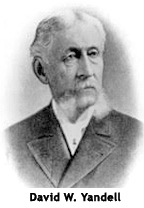 Yandell, born Sept. 4, 1826 in Murfreesboro, Tenn., moved with his family to Nashville and then to Lexington when his father accepted a teaching position at Transylvania College. Yandell, born Sept. 4, 1826 in Murfreesboro, Tenn., moved with his family to Nashville and then to Lexington when his father accepted a teaching position at Transylvania College.
In 1837, the family moved to Louisville and young David entered the new Louisville Medical Institute and earned his degree as a medical doctor. In April 1851, he married Frances Jane Crutcher and eventually became chairman of the Clinical Medicine and Pathological Anatomy department at the Louisville Medical Institute.
When Kentucky’s neutrality was shattered in September 1861, David applied for and was immediately granted a commission in the Confederate medical department. He resigned from the Louisville Medical Institute and left for Nashville to join the Provisional Army of the Confederate States. David traveled between Bowling Green, which was Confederate Gen. Albert Sidney Johnston’s headquarters, and Nashville. By mid-October 1861, Yandell was assigned to Gen. Johnston, commander of the Army of the West, who appointed him medical director.
After the fall of Fort Henry and Fort Donelson in February 1862, Yandell, along with Johnston’s army, withdrew from Kentucky and fell back to Corinth, Miss. In April 1862, Johnston’s army moved on Union Gen. Ulysses Grant’s troops. During the attack, Johnston told Yandell to take care of the Union and Confederate wounded.
Johnston was riding his horse while leading his men through the Peach Orchard, when he was struck four times by minie bullets. One of the bullets landed behind his right leg and blood flowed into his boot, but no one knew that Johnston has been seriously wounded.
Tennessee Gov. Isham Harris and Capt. W. L. Wickham helped Johnston dismount. Capt. Theodore O’Hara, Johnston’s aide, and Col. William Preston Johnston rode up and found Gen. Johnston on the ground and Johnston took his last breath in Preston’s arms. Ironically, Dr. Yandell had supplied tourniquets to all commanders in the field, including Johnston, but since Yandell was away helping wounded soldiers, no one knew how to use the tourniquet.
After Johnston’s death, Yandell was assigned as medical director for Confederate Gen. William Hardee’s Corps and as president of the Army of Tennessee’s Board of Medical Examiners. During the Confederate invasion of 1862, Yandell rode into Kentucky with Hardee’s corps.
After the battle of Perryville, Oct. 8, 1862, Confederate Gen. Braxton Bragg led the army out of Kentucky and back into Tennessee. The army’s retreat led to criticism from not only the soldiers who fought at Perryville, but also from Bragg’s officers. Yandell called the failed invasion: “Bragg’s terrible blunder.”
Yandell wrote to Col. William Preston, aide to Jefferson Davis, that he should visit the Army of Tennessee and gather the facts and opinions of the Kentucky campaign. Yandell wrote that Bragg “was either stark mad or utterly incompetent.” Yandell also noted that Confederate Gen. Leonidas Polk, who was an Episcopal bishop before the war and one of the Bragg’s corps commanders, could “do more service on a chronic court of inquiry than in command of troops.”
The doctor further stated that if “Bragg isn’t removed and Polk transferred to house duties, we will all go to the devil out here. Providence alone saved us in Kentucky and that in spite of the commander.”
On Dec. 14, 1862, Confederate Gen. John Hunt Morgan married Mattie Ready at the Ready family mansion in Tennessee. The wedding was to be the event of the season. Morgan had also just been promoted to brigadier general and Polk, with his vestments covering his general’s uniform, performed the ceremony. Mattie Ready’s brother Horace, an officer on General Hardee’s staff, and Col. George St. Leger Grenfell, served as groomsmen. Generals Bragg, Hardee, Ben Cheatham and John Breckinridge looked on. An elaborate dinner was served after the wedding.
After the dinner, a group of officers was having wine in the library when someone suggested that Yandell perform his popular impersonations of senior officers. He did Polk and was finishing Hardee when Bragg was called from the room. Yandell’s best impression was of Bragg. The officers in the room pleaded for Yandell to do Bragg. Yandell began, striding to and fro, scowling, waving his arms, and rasping out jerky sentences on two of Bragg’s favorite themes: lack of discipline and use of whiskey in the army. Suddenly, Bragg walked back into the room and Yandell stopped, his face turning pale. Bragg then spoke in the silent room, “Go on, doctor, don’t let me interrupt you. It is certainly entertaining and doubtless quite accurate.”
Yandell, however, did not repeat the impression.
Dr. Yandell remained with Hardee throughout the winter and early spring of 1863. At the Battle of Stone’s River, fought Dec. 31, 1862 to Jan. 2, 1863, Confederate Gen. Roger Hanson, a commander under Confederate Gen. John Breckinridge’s Orphan Brigade, was seriously wounded. He was taken to Murfreesboro by wagon and when he arrived, Mary Breckinridge cut off Hanson’s boot and tore off pieces of her dress to make bandages. Roger Hanson’s wife, Virginia, was understandably distraught and worked with Breckinridge to make her husband more comfortable.
Yandell examined Hanson and decided he was too weak for a leg amputation. Hanson told Yandell to “do the best for me, doctor” and Yandell told Hanson he did not think the general would survive. On Jan. 4, 1863, Hanson died.
After the battle of Murfreesboro, Yandell was transferred to Jackson, Miss., and served under Gen. Joseph Johnston. In 1864, Yandell was transferred to Louisiana and served as medical director under Gen. Edmund Kirby Smith, who was commander of the Army of the Trans-Mississippi. On June 6, 1865, Yandell surrendered in New Orleans and returned to Louisville.
After the war, Dr. Yandell, along with his father and brother opened a small office on Chestnut Street. In 1867, Yandell rejoined the University of Louisville as a professor of clinical medicine and two years later became professor of clinical surgery. He also became an active senior editor of one of the Midwest’s leading medical journals, The American Practitioner, and was an advocate for the professional society that aided the dissemination of knowledge and worked to improve the profession’s standards.
On May 8, 1898, David Yandell was laid to rest at Cave Hill Cemetery in Louisville. With his death, the medical community lost a man that helped mold and direct medical education in the nineteenth century.
|

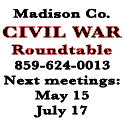
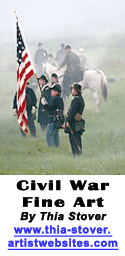
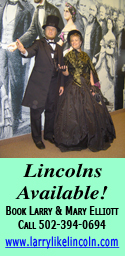

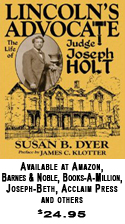
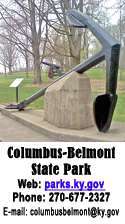




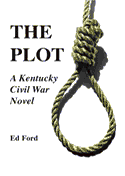


 Yandell, born Sept. 4, 1826 in Murfreesboro, Tenn., moved with his family to Nashville and then to Lexington when his father accepted a teaching position at Transylvania College.
Yandell, born Sept. 4, 1826 in Murfreesboro, Tenn., moved with his family to Nashville and then to Lexington when his father accepted a teaching position at Transylvania College.